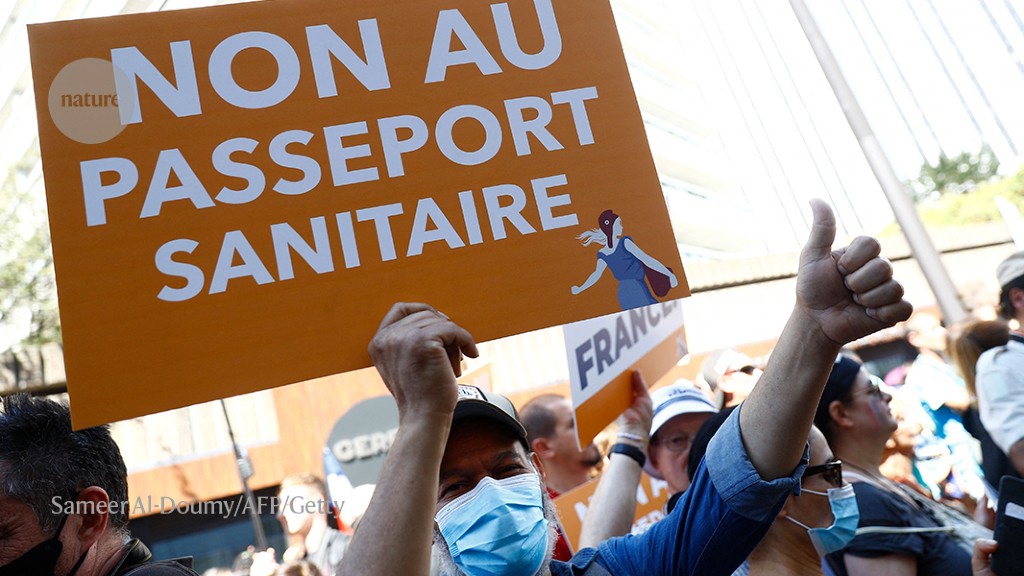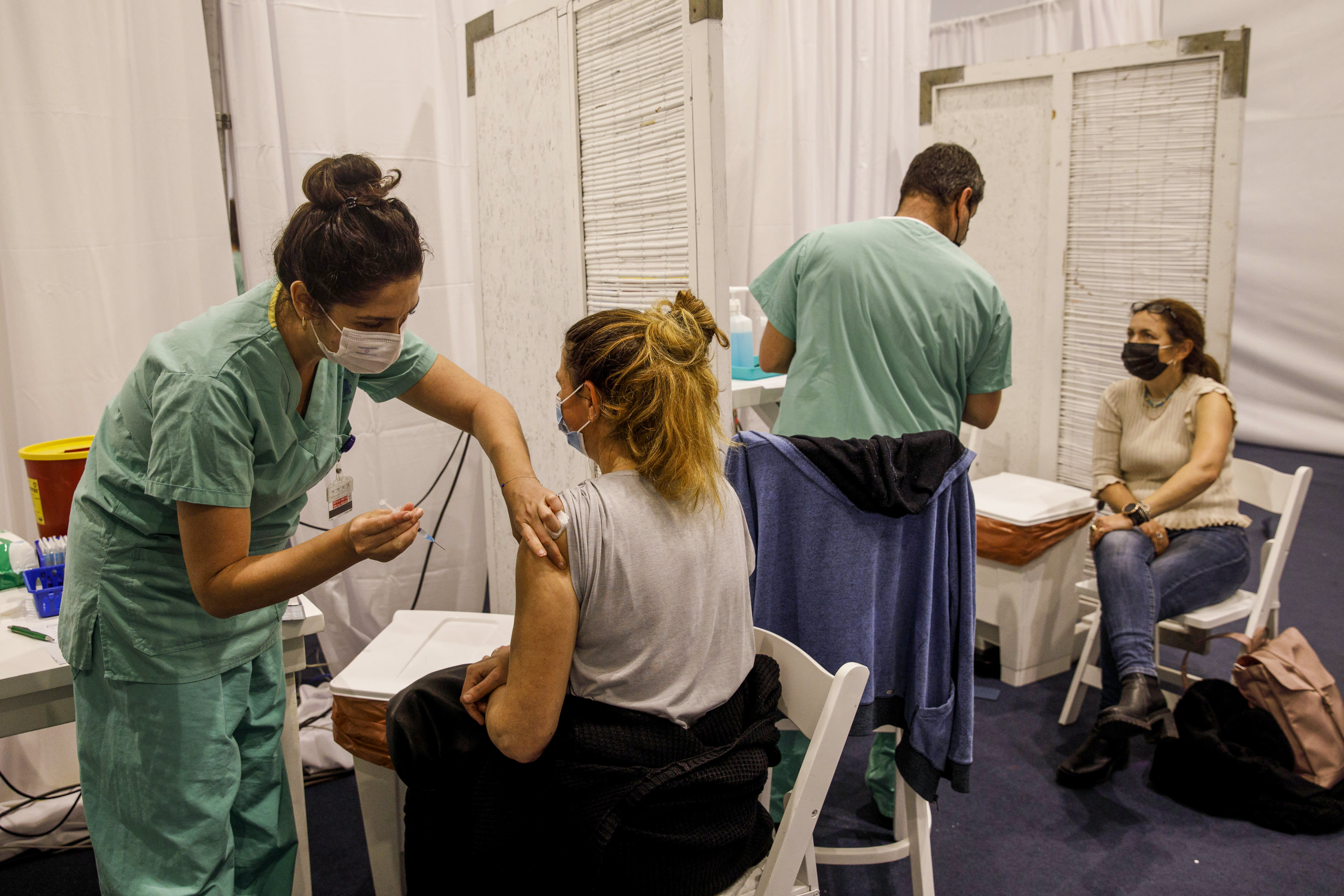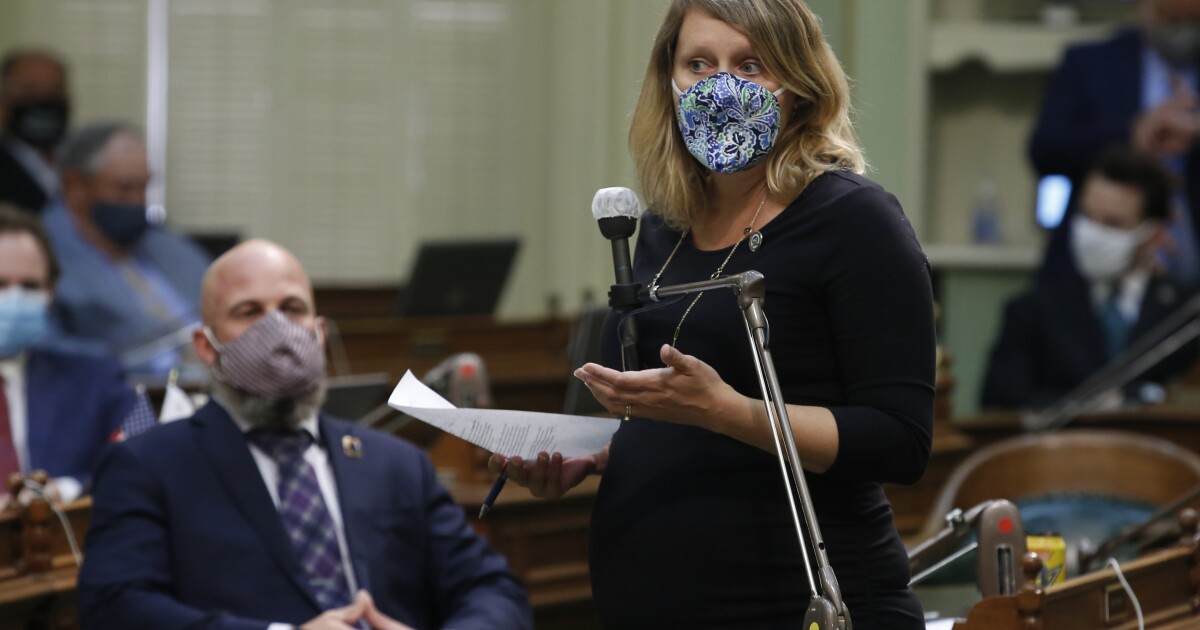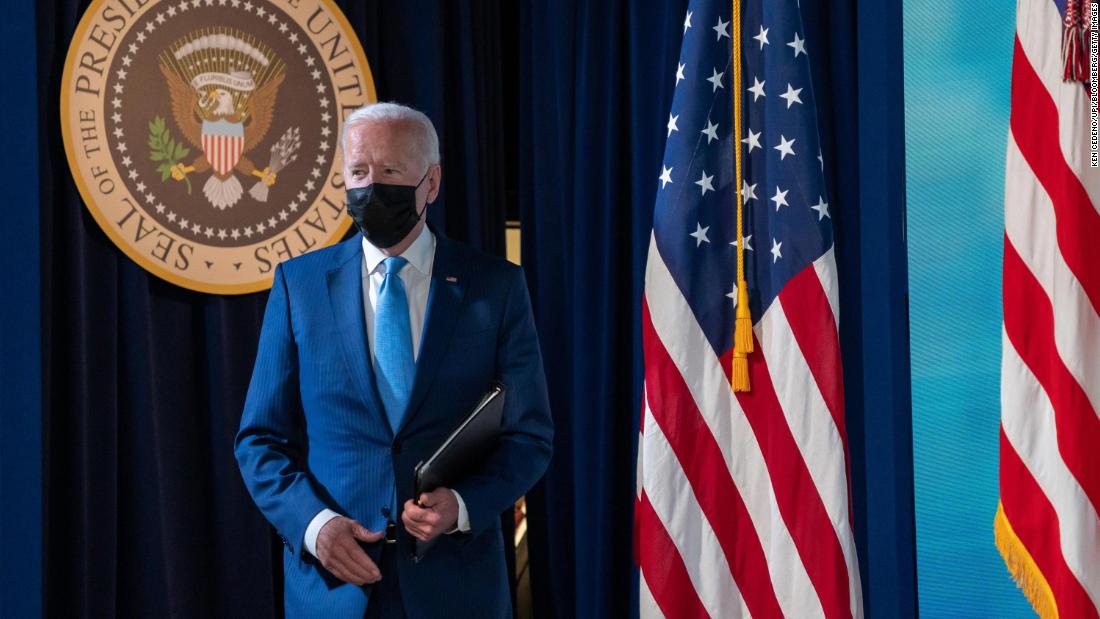
Did COVID vaccine mandates work? What the data say
You can also search for this author in PubMed Google Scholar
For four weekends across July and August last year, around 200,000 protesters took to the streets and squares of France, united in opposition to President Emmanuel Macron’s pass sanitaire. Soon, to enter cinemas, museums, cafés, trains and other shared public venues, people in France would have to present evidence that they were fully vaccinated, had tested negative for a COVID-19 infection or had recovered from an infection within the previous four months. In Paris, protesters chanted “Freedom!” and “Macron, we don’t want your pass!”
Such protests have a long history. After the British government introduced a nationwide vaccine mandate in 1853 — fining parents who did not immunize their children against smallpox — localized opposition groups formed, and protests periodically flared. Then, as now, the firmest opponents of mandates argued that they violate personal liberty and bodily autonomy. When legal requirements for vaccination arise, opposition often follows.
Public-health researchers generally agree that the preferred way to achieve vaccine-cover-age targets is through education, outreach, public engagement and well-organized infrastructure — mandates should serve as a last resort. But decades of experience with efforts to vaccinate children against communicable diseases have left researchers with differing opinions on whether and when to recommend mandatory vaccinations. Some argue that coercive measures can damage public trust, sow social division and entrench opposition to vaccination. Supporters say that mandates are intended to establish new social norms, not to punish people. And they increase vaccine uptake.
Leave a Comment
Related Posts

Israel says Pfizer Covid vaccine is just 39% effective as delta spreads, but still prevents severe illness
Comment




















